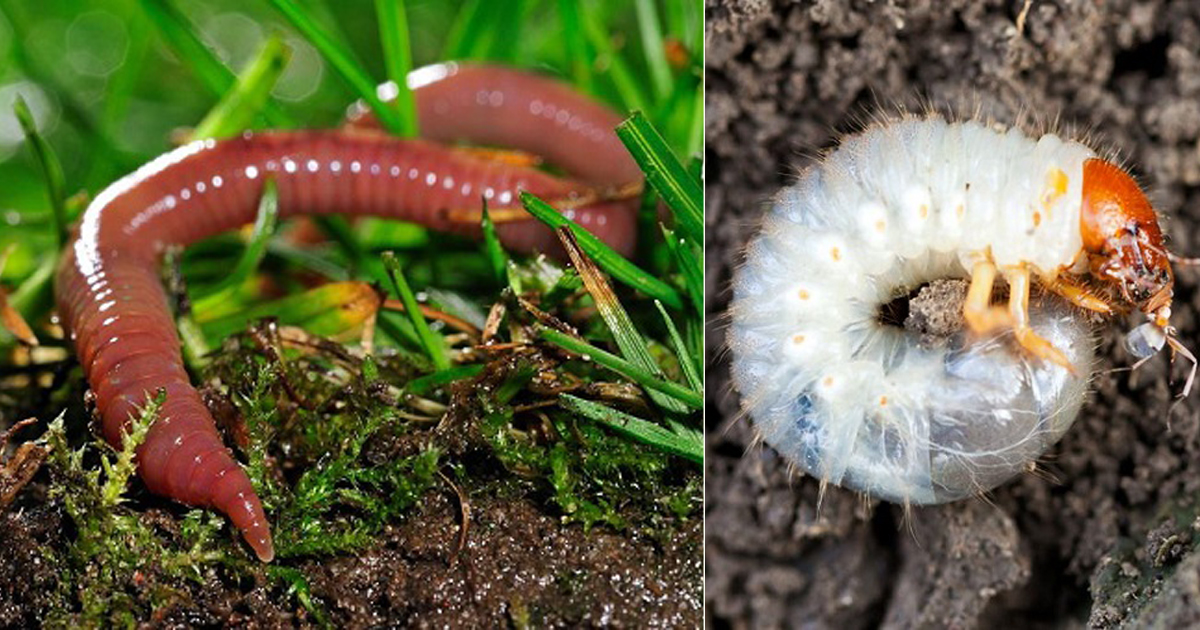Worms in indoor plants can be a common problem, affecting the health of your plants and potentially spreading diseases. Understanding the impact of worms, identifying their presence, and implementing effective control measures are crucial for maintaining healthy indoor greenery.
Worms can infest various indoor plants, causing damage to tissues and facilitating the spread of diseases. Common types of worms include nematodes, fungus gnats, and earthworms, each with specific effects on plant health.
Impact on Plant Health

The presence of worms in indoor plants can have detrimental effects on their health, ranging from stunted growth to complete plant death. Different worm species have varying impacts on different plant types, and their feeding habits and behaviors determine the extent of damage caused.
One common type of worm found in indoor plants is the root-knot nematode. These microscopic worms invade plant roots, forming galls or knots that interfere with water and nutrient uptake. This leads to stunted growth, wilting, yellowing of leaves, and reduced yields in fruiting plants. Root-knot nematodes are particularly harmful to vegetables, such as tomatoes, peppers, and cucumbers, as well as ornamental plants like roses and petunias.
Another type of worm that can infest indoor plants is the fungus gnat. The larvae of fungus gnats feed on decaying organic matter in the soil, but they can also damage plant roots and stems. They create small tunnels in the roots, which can weaken the plant and make it more susceptible to disease. Fungus gnats are particularly problematic in moist environments and can be a nuisance in greenhouses and indoor gardens.
In addition to direct damage to plant tissues, worms can also spread diseases. Nematodes, for example, can transmit viruses, bacteria, and fungi that can cause severe diseases in plants. These diseases can further weaken plants, making them more susceptible to other pests and environmental stresses.
Identification and Prevention: Worms In Indoor Plants

Worms in indoor plants can be a nuisance, damaging plants and affecting their health. Identifying and preventing worm infestations is crucial for maintaining healthy indoor greenery.
Identification
Common types of worms that infest indoor plants include:
- Fungus gnats: Tiny, black or gray flies that lay eggs in moist soil, resulting in maggot-like larvae that feed on plant roots.
- Root aphids: Small, white or pink insects that attach to plant roots, sucking sap and causing stunted growth.
- Springtails: Tiny, wingless insects that jump when disturbed, often found in moist soil or on plant leaves.
- Nematodes: Microscopic roundworms that can infest plant roots, causing root damage and reduced plant vigor.
Signs of worm infestations include:
- Visible worms or larvae in soil or on plant roots
- Yellowing or wilting leaves
- Stunted growth
- Root damage
Prevention
Preventive measures to minimize worm infestations include:
- Soil sterilization: Sterilizing potting soil before use can kill worm eggs and larvae.
- Quarantine new plants: Isolate new plants for a few weeks before introducing them to your indoor collection to prevent the spread of pests.
- Avoid overwatering: Moist soil attracts worms, so water plants only when necessary.
- Use organic pest control methods: Neem oil, insecticidal soap, or diatomaceous earth can help control worm populations.
- Encourage beneficial insects: Ladybugs, lacewings, and predatory mites can help keep worm populations in check.
Treatment and Control

Infestations of worms in indoor plants require prompt treatment to prevent further damage and ensure plant health. Effective control measures involve both chemical and organic approaches, each with its own advantages and limitations.
Chemical Pest Control, Worms in indoor plants
Chemical pesticides offer a fast and effective solution for treating worm infestations. However, it’s crucial to use them cautiously, following the instructions on the product label. Common chemical pesticides include:
- Insecticidal Soaps: Derived from fatty acids, insecticidal soaps kill worms by disrupting their cell membranes. They are safe for use on most plants but may cause leaf damage if not applied correctly.
- Neem Oil: Extracted from the neem tree, neem oil acts as a natural insecticide and repellent. It is effective against a wide range of pests, including worms, but may have a strong odor.
- Pyrethroids: Synthetic insecticides that mimic natural compounds found in certain plants, pyrethroids are effective against a variety of pests. However, they can be harmful to beneficial insects and should be used with caution.
